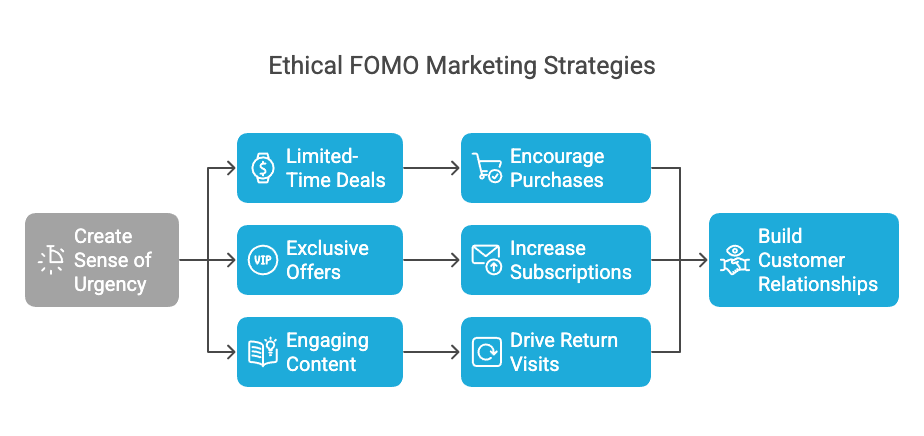People are having fun without you.
That pervasive idea lies at the core of Fear of Missing Out – or FOMO, as it’s more commonly called. Apprehension at being left out of the loop. Anxiety at missing out on a fun party or cool event. The constant concern that other people are having rewarding, fulfilling lives – and you aren’t.
It’s a phenomenon that’s never been more widespread, largely thanks to social media. That isn’t a good thing.
People see the perfect online lives of those they follow. Then, they worry that their own lives aren’t as exciting. As a result, they feel very anxious. They worry about missing important events in their friends’ and family’s lives. Furthermore, they feel sad about missing out on good life experiences.
Envy, jealousy, sadness. You don’t want people to connect these feelings with your brand. However, if you’re not careful with FOMO, they will. And many might reject your brand completely. They’ll see it as too manipulative.
Modern consumers see many marketing messages. So, they’ve become good at spotting when a brand is fake. Indeed, if your marketing is deceitful or manipulative, people will quickly realize it. At this point, you might think using FOMO in marketing is inherently manipulative.
Is it even possible to be ethical with it?
Yes and no.

FOMO marketing is all about creating a sense of urgency and exclusivity.
Therefore, the trick lies in achieving that without being disrespectful towards your audience. Fortunately, there are a few ways you can accomplish this, and in fact, most involve not actively trying to create a fear of missing out.
- Limited-time deals. Special sales, limited free shipping, early-purchaser discounts, and so on. People won’t miss out on acquiring your products altogether – rather, they’ll miss out on a good deal.
- Exclusive offers for mailing list subscribers. People like feeling as though they’re on the ‘in’ with a brand – and the knowledge that they’re missing out on such a privilege will inevitably drive up subscriptions.
- Generate and produce consistent, compelling content. The notion that they might miss out on the latest blog post or video will keep people coming back to your site.
At the end of the day, emotional manipulation has no place in marketing. Today’s consumers are savvy enough that it no longer works. But perhaps more importantly, it shows a certain level of contempt for your customers that no business should ever display.
You cannot, after all, build a strong relationship with your audience if you hate them – and that’s what marketing is ultimately about.




